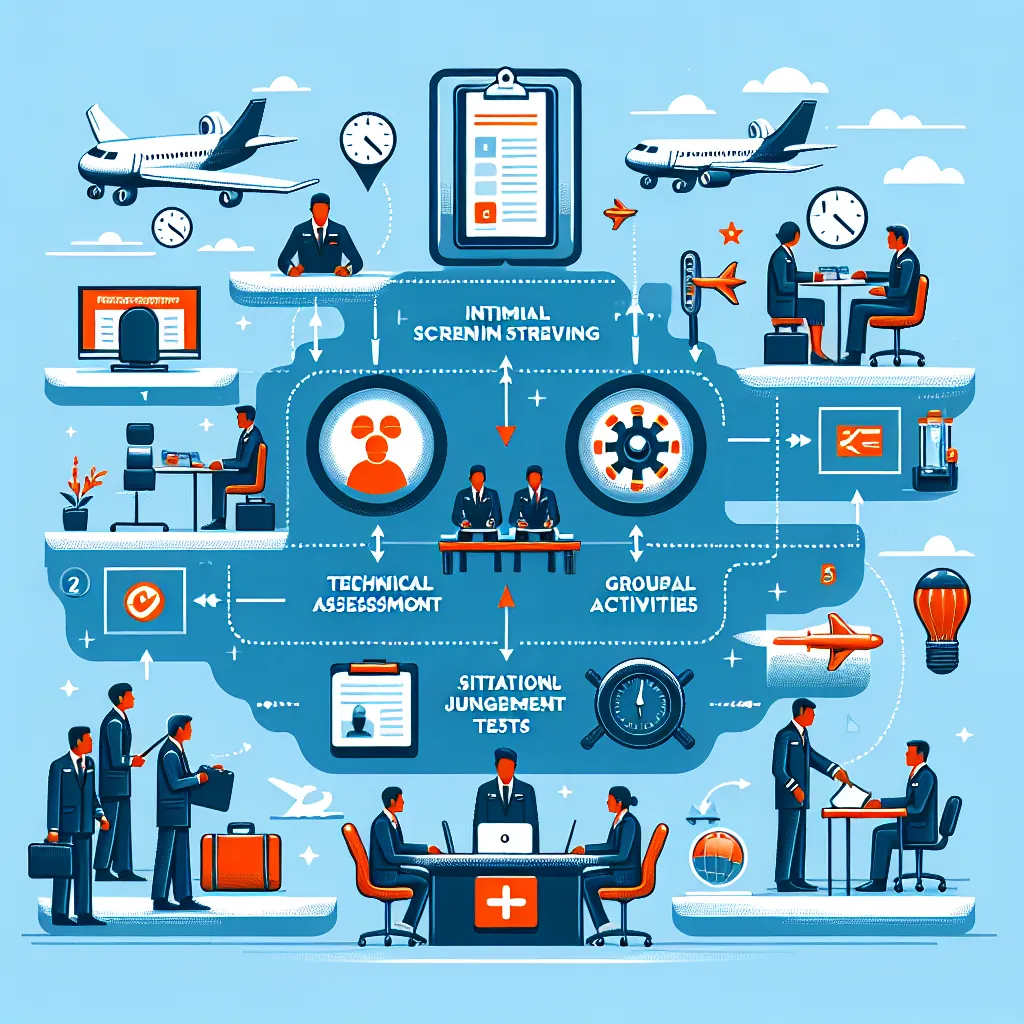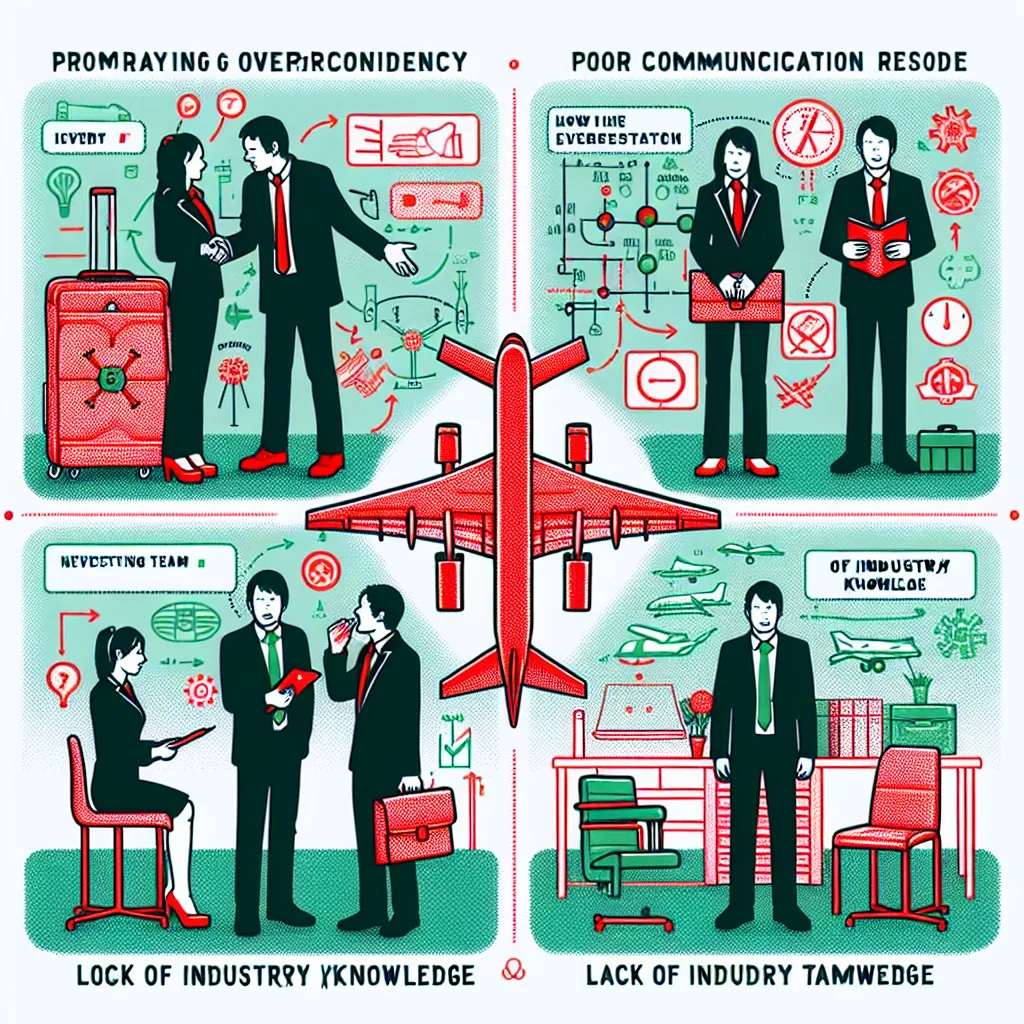Are you aspiring to land a job in the aviation industry? Whether you’re aiming for a position as a pilot, flight attendant, or ground staff, preparing for an aviation interview is crucial to your success. This comprehensive guide will walk you through the essential steps to ace your aviation interview and increase your chances of securing your dream job in this exciting field.
Understanding the Aviation Interview Process
Aviation interviews are known for their rigorous nature, designed to assess not only your technical knowledge but also your ability to handle stress, work in a team, and prioritize safety. Understanding the process is the first step towards successful preparation.
What to Expect in an Aviation Interview
Aviation interviews typically consist of several stages:
- Initial screening (often via phone or video call)
- Technical knowledge assessment
- Situational judgment tests
- Group exercises
- One-on-one interviews with hiring managers
- Medical and physical fitness tests (for certain roles)
Each stage is designed to evaluate different aspects of your suitability for the role, from your theoretical knowledge to your practical skills and personal attributes.
 Aviation Interview Process
Aviation Interview Process
Preparing for Your Aviation Interview
Research the Company and Position
Before your interview, thoroughly research the airline or aviation company you’re applying to. Understand their:
- History and company culture
- Fleet composition (for airlines)
- Routes and destinations
- Recent news and developments
- Mission statement and values
This knowledge will demonstrate your genuine interest and help you tailor your responses to align with the company’s goals.
Review Technical Knowledge
Depending on the position you’re applying for, you’ll need to brush up on specific technical knowledge:
- For pilots: Review aviation regulations, aircraft systems, and navigation procedures.
- For flight attendants: Study safety procedures, emergency protocols, and customer service best practices.
- For ground staff: Familiarize yourself with airport operations, ticketing systems, and baggage handling procedures.
Prepare for Common Aviation Interview Questions
Here are some frequently asked questions in aviation interviews, along with tips on how to answer them:
-
“Why do you want to work in the aviation industry?”
- Highlight your passion for aviation and any relevant experiences that sparked your interest.
- Discuss the unique aspects of the industry that appeal to you, such as the fast-paced environment or the opportunity to travel.
-
“How would you handle a difficult passenger?”
- Emphasize your commitment to customer service and safety.
- Describe a step-by-step approach: remain calm, listen actively, empathize, and seek a resolution within company guidelines.
-
“What would you do in case of an in-flight emergency?”
- Stress the importance of following established procedures and maintaining composure.
- Outline the general steps: assess the situation, communicate with the crew, ensure passenger safety, and follow emergency protocols.
-
“How do you stay updated with aviation regulations and industry changes?”
- Mention specific aviation publications, websites, or forums you follow.
- Discuss any relevant courses or workshops you’ve attended.
-
“Describe a time when you had to work as part of a team to solve a problem.”
- Use the STAR method (Situation, Task, Action, Result) to structure your response.
- Choose an example that showcases your teamwork, communication, and problem-solving skills.
Practice Situational Judgment Scenarios
Aviation interviews often include situational judgment tests to assess how you would handle various scenarios. Practice with examples like:
- Dealing with a passenger who refuses to follow safety instructions
- Managing a delay due to technical issues
- Handling a conflict between crew members
When responding to these scenarios, focus on:
- Prioritizing safety and following company procedures
- Demonstrating excellent communication skills
- Showing empathy and professionalism
- Thinking critically and making sound decisions under pressure
 Aviation Interview Preparation
Aviation Interview Preparation
Mastering the Interview Day
Dress Appropriately
First impressions matter. Dress professionally, adhering to aviation industry standards:
- For men: A well-fitted suit in a conservative color, polished shoes, and a neat haircut.
- For women: A business suit or conservative dress, closed-toe shoes, and minimal jewelry.
- Ensure your appearance is well-groomed and reflects the professionalism expected in the aviation industry.
Bring Necessary Documents
Prepare a folder with multiple copies of:
- Your resume
- Licenses and certifications
- Passport and other identification
- Letters of recommendation
- Any additional documents requested by the company
Demonstrate Your Soft Skills
Throughout the interview process, showcase essential soft skills valued in the aviation industry:
- Communication: Speak clearly and confidently, maintaining eye contact.
- Teamwork: Highlight your ability to collaborate with diverse groups of people.
- Adaptability: Show your willingness to embrace change and learn new skills.
- Cultural sensitivity: Demonstrate your awareness and respect for different cultures.
- Stress management: Remain calm and composed, even under pressure.
Follow-Up Questions and Answers
Here are additional follow-up questions you might encounter in an aviation interview, along with suggested responses:
-
Q: “How do you handle jet lag when flying across multiple time zones?”
A: “I prioritize proper rest before and after flights, stay hydrated, and adjust my sleep schedule gradually. I also use techniques like light exposure and moderate exercise to help my body adapt more quickly.” -
Q: “What would you do if you noticed a colleague not following safety procedures?”
A: “I would approach the colleague privately and remind them of the correct procedure, emphasizing the importance of safety. If the behavior persists, I would report it to a supervisor, as safety is paramount in our industry.” -
Q: “How do you stay motivated during long, potentially monotonous flights?”
A: “I maintain a positive attitude by focusing on the responsibilities of my role and the importance of each task. I also use downtime constructively, such as reviewing procedures or engaging in professional development activities when appropriate.” -
Q: “Can you describe a situation where you had to make a quick decision under pressure?”
A: “During a flight simulation exercise, we encountered a sudden engine failure scenario. I quickly assessed the situation, communicated with my co-pilot, and followed emergency procedures to safely ‘land’ the aircraft. This experience reinforced the importance of staying calm and following protocols in high-pressure situations.” -
Q: “How would you handle a situation where you disagree with a superior’s decision?”
A: “I would respectfully voice my concerns privately, providing clear reasons for my perspective. However, I understand the importance of the chain of command in aviation. If the superior maintains their decision after our discussion, I would follow their instructions, ensuring safety protocols are always adhered to.”
Common Mistakes to Avoid in Aviation Interviews
-
Lack of industry knowledge: Failing to demonstrate a solid understanding of aviation trends and regulations can significantly impact your chances.
- Solution: Stay updated with industry publications and news. Join aviation forums or groups to engage in discussions.
-
Overconfidence: While confidence is important, overconfidence can be perceived as arrogance or a lack of awareness of the challenges in aviation.
- Solution: Balance confidence with humility. Acknowledge the complexities of the industry and express eagerness to learn and grow.
-
Inadequate situational awareness: Failing to show good judgment in scenario-based questions is a red flag for interviewers.
- Solution: Practice analyzing various aviation scenarios. Focus on safety, communication, and problem-solving in your responses.
-
Poor communication skills: Aviation relies heavily on clear, concise communication.
- Solution: Practice articulating your thoughts clearly. Use aviation terminology correctly and be prepared to explain complex concepts simply.
-
Neglecting teamwork examples: Aviation is a collaborative field, and failing to highlight your teamwork skills can be detrimental.
- Solution: Prepare specific examples of successful teamwork experiences, emphasizing your role and the outcomes achieved.
-
Ignoring the importance of customer service: Even in technical roles, customer service is crucial in aviation.
- Solution: Highlight any customer service experience you have, and discuss how you would apply these skills in an aviation context.
-
Lack of stress management examples: Aviation can be a high-stress environment, and employers want to know you can handle pressure.
- Solution: Prepare anecdotes that demonstrate your ability to remain calm and make sound decisions under stress.
 Common Aviation Interview Mistakes
Common Aviation Interview Mistakes
Conclusion
Preparing for an aviation interview requires a combination of technical knowledge, soft skills, and industry awareness. By thoroughly researching the company, practicing common questions, and demonstrating your passion for aviation, you’ll be well-equipped to make a strong impression. Remember to stay calm, be authentic, and let your enthusiasm for the industry shine through. With proper preparation and the right attitude, you’ll be one step closer to launching your career in the exciting world of aviation.
We encourage you to share your experiences or ask any questions about aviation interviews in the comments below. For more tips on career development in the aviation industry, check out our related articles on resume writing for aviation professionals and career advancement strategies in the airline sector.




